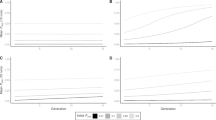Abstract
Moral capital is the set of shared norms and values in a society. The question of this chapter is what is the role of moral capital in the smooth running of society but particularly in times of crisis? Even before pandemic of 2020–2021 and racial reckoning in America, we found ourselves in a place where social norms are flaunted by our leaders, by television and radio personalities, on social media, and generally deteriorating throughout the society. This paper explores the notion of moral capital, what it is and the role it plays in flourishing societies. And finally, I will argue for the important role that higher education plays in supporting moral capital mostly through cultivating the virtues of civility, civic grace, and the epistemic virtues.
This work on moral capital was generously supported by a grant from the National Institute on Civil Discourse.
Access this chapter
Tax calculation will be finalised at checkout
Purchases are for personal use only
Similar content being viewed by others
Notes
- 1.
Looking at Adam Smith's work in totality, The Wealth of Nations and The Theory of the Moral Sentiments it is clear that Smith thought that both what he called sympathy (the basis for him of public morality) and self-interest work together for a well-functioning society.
- 2.
https://www.econlib.org/library/Enc/PublicGoods.html; see Civility in Politics and Education ed by Deborah Mower and Wade Robison where they discuss this idea.
References
Bates KG (2019) When Civility Is Used as A Cudgel Against People of Color. All Things Considered
Brooks D (2016) How to Repair Moral Capital. New York Times.
Chambers S, Kopstein J (2001) Bad civil society. Polit Theory 29(6)
Cowan, Tyler Public Goods in The Library of Economics and Liberty. https://www.econlib.org/library/Enc/PublicGoods.html; Accessed 04/2021
Etzioni A (2019) America Must Learn to Deal with Moral Outrage. Available at SSRN: https://ssrn.com/abstract=3493390
Goldberg J (2020) James Mattis Denounces President Trump, Describes Him as a Threat to the Constitution. https://www.theatlantic.com/politics/archive/2020/06/james-mattis-denounces-trump-protests-militarization/612640/. Accessed 10/2020
Haidt J (2012) The righteous mind: why good people are divided by politics and religion. Vintage Books, New York
Haslanger S (2018) What is a social practice? Royal Institute of Philosophy Supplement 82
Hernández RD (2015) The World Turned on its Head: Coloniality, Civility and the Decolonial Imperative. NACCS Annual Conference Proceedings. 2
Mill JS (1933) The Collected Works of John Stuart Mill, Volume X - Essays on Ethics, Religion, and Society ed. John M. Robson, Introduction by F.E.L. Priestley. Toronto: University of Toronto Press, London: Routledge and Kegan Paul
Mower D, Robison W (2012) Civility in politics and education. Routledge
Pettigrove G (2012) Forgiveness and love. Oxford University Press
Putman R (2000) Bowling alone: the collapse and revival of American community. Simon & Schuster, New York
Putnam R (1994) Social capital and public affairs. Bull Am Acad Arts Sci 47(8):5–19. https://doi.org/10.2307/3824796
Schwartz B, Sharpe K (2012) Colleges should teach intellectual virtues. Chronicle of Higher Education
Seneca LA (2011) On benefits (trans. Miriam Griffin and Brad Inwood). University of Chicago Press, Chicago
Smith A (2014) The wealth of nations shine classics; the theory of the moral sentiments (1802). George Bell and Sons. York St. Covent Garden and New York, London
The Guardian 2019 Barack Obama takes on ‘woke’ call-out culture: ‘That’s not activism’ – video. https://www.theguardian.com/us-news/video/2019/oct/30/barack-obama-calls-out-politically-woke-social-media-generation-video
Walker M (1998) Moral understandings: a feminist study in ethics. Routledge, New York
Zerilli L (2014) Against civility: a feminist perspective. In: Civility, legality, and Justice in America, 4 edn. Austin Sarat. Cambridge University Press, Cambridge, pp 107–131
Author information
Authors and Affiliations
Corresponding author
Editor information
Editors and Affiliations
Rights and permissions
Copyright information
© 2022 The Author(s), under exclusive license to Springer Nature Switzerland AG
About this chapter
Cite this chapter
McGregor, J. (2022). Moral Capital, Civic Grace, and the Role of Education. In: McGregor, J., Navin, M.C. (eds) Education, Inclusion, and Justice. AMINTAPHIL: The Philosophical Foundations of Law and Justice, vol 11. Springer, Cham. https://doi.org/10.1007/978-3-031-04013-9_12
Download citation
DOI: https://doi.org/10.1007/978-3-031-04013-9_12
Published:
Publisher Name: Springer, Cham
Print ISBN: 978-3-031-04012-2
Online ISBN: 978-3-031-04013-9
eBook Packages: Law and CriminologyLaw and Criminology (R0)




